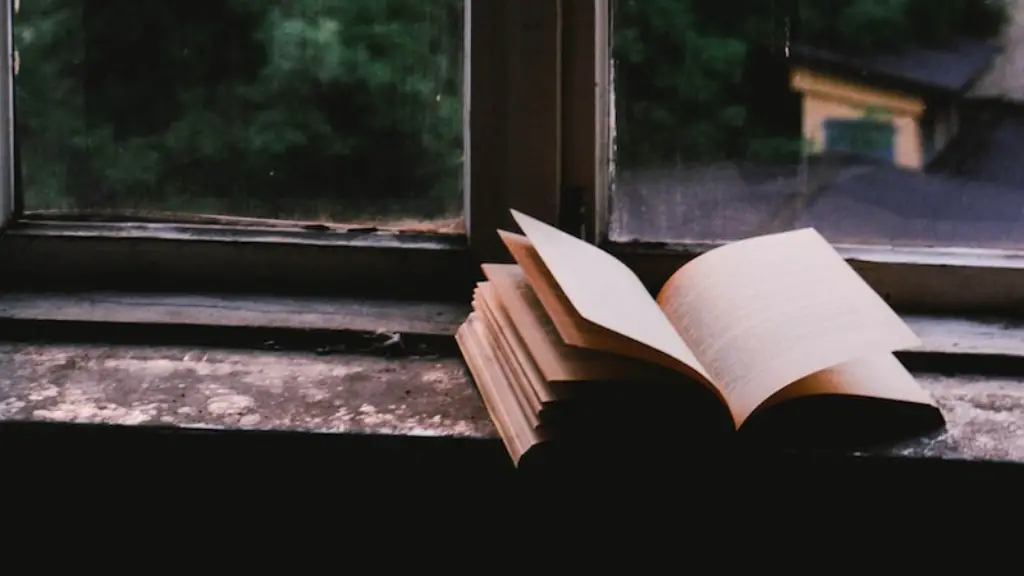What is bad poetry?
Poetry has been used as a form of communication since ancient times. It has been used to express emotions, feelings, beliefs, stories and to communicate messages. Poetry has become an integral part of many cultures and cultures around the world and has influenced many aspects of life in those cultures. But what exactly is bad poetry?
Bad poetry is a type of literature which lacks proper structure, good choice of words, meaningful content and correct spelling and grammar. It is considered to be the opposite of good poetry, which is well-crafted, meaningful and conveys certain messages. Bad poetry can be divided into different types:
- Sentimental poetry: This type of bad poetry is overly-sentimental and has very little literary value.
- Rhyme-poor poetry: This type of bad poetry has little to no rhyme and often relies on forced and awkward rhymes.
- Incoherent poetry: This type of bad poetry lacks structure, often meandering haphazardly.
According to experts, bad poetry is often difficult to understand, and sometimes difficult to even read. It can often be seen as a joke or entertainment, but rarely, on its own, has any real value. Bad poetry can be recognized by its often awkward, unaccomplished and often unsuccessful attempts at being poetic. It can also be identified by the presence of cliché phrases and ill-thought-out metaphors.
Bad poetry is not just found in old and forgotten books and manuscripts, some contemporary poets who try to “push the envelope” can often create works of poetry which are considered bad by critics. Popular poets of the last few decades such as Allen Ginsberg, has been said to have written works which have been panned by critics.
In the world of literature, bad poetry is often seen as a type of writing which is overly sentimental, clumsy, melodramatic and often lacks any real depth or originality. It is often seen as the work of someone who is trying too hard at being poetic but falls short, sometimes comically so.
What Influences Bad Poetry?
Bad poetry can be influenced by a variety of factors, ranging from a lack of knowledge about the basics of poetry and writing, to simply attempting to be overly poetic. It is believed that those who are influenced by popular culture, either through music and films, may create bad poetry out of imitation and a general lack of understanding of the fundamentals of poetry.
In some cases, bad poetry can be seen as a result of personal biases and presumptions. For example, if a poet has a particular set of tastes, they may consider any and all poems which do not conform to their taste as bad poetry. Similarly, a particular poet may hold a specific view on a particular subject, and all poems which do not conform to that view may be ‘bad’ to that poet.
The Impact of Bad Poetry
The impact of bad poetry can range from zero to a great deal of damage, depending on the context. Theoretically, bad poetry can have a great influence on the opinion of people, depending on where it is seen and by who. For example, if a poem which is poorly crafted, with insignificant content is seen by an important member of a community, it could lead to a detrimental effect of the entire poetry scene in that particular community.
Similarly, if a poem with potential is poorly written and cannot convey the intended message, then it could lead readers to form false interpretations or wrong conclusions about the message being conveyed. This could have a detrimental effect on the view of the poet and the nuance of their message.
Creating Good Poetry
In order to create good poetry, one needs to be aware of the basics of poetry and a set of skills and rules which are universal to all forms of poetry.
Firstly, it is important to have a good grasp of language and its usage. A good knowledge of how words work, how they interact with each other and how they are used in different contexts can help a poet to create works of worth.
Secondly, one must practice and hone their craft continuously. Working on poems regularly, experimenting with different styles and techniques, and constantly improving one’s skills will help to create really good works of poetry.
Thirdly, it is important to always try to create original and unique works. Most good poetry is created through inspiration and seeing the world from a unique perspective. It is also important to be open-minded, to appreciate the works of other poets, and to accept criticism.
Significance of Good Poetry
Good poetry can have a profound effect on its readers. It can transport them to another world, can have a positive effect on their outlook towards life, and can help to broaden their perspective on certain matters. It can also be used to send powerful and much-needed messages, to give hope at times of despair and to inspire hope in people.
Additionally, good poetry can serve as a source of encouragement and motivation for people, helping them to strive and pursue their ambitions. When a person reads a good poem, they can be reminded of the importance of life and the beauty of the world. This can be a way of inspiring them to never forget their goals and that if they work hard, they can achieve great things.
What Makes Good Poetry?
Good poetry is a form of literature which has some aspects which make it superior to bad poetry. To create poetry which is good, it is important to understand certain characteristics which make it so. These characteristics include:
- Meaningful content: Good poetry always has a deep message, with well-thought-out metaphors and powerful images. It follows a certain line of thought which is meaningful and which provokes thought in its readers.
- Strong themes: Good poetry usually has a strong overarching theme, which carries through the poem and remains in the reader’s mind even after they have read the poem.
- Rhyme and structure: Good poetry always follows a specific pattern or structure and often has some mechanism of rhyming. The rhymes are well thought-out and often quite clever.
The Power of Good Poetry
Good poetry has the power to inspire and transform, to make people think, to evoke emotions and to make people see the world from a new perspective. It is believed that good poetry can bring people together and to bridge the gap between cultures, nations and people. It can also be used to further certain causes, to fight for justice and to stand up for those who are less privileged in society.
The power of good poetry relies on its ability to transport people, to get them to feel something, to think of something and to question certain aspects of life. Good poetry often contains elements which make people think and reflect, making them come to their own conclusion, which can be much more powerful than simply telling them what they should think or feel.
The Impact of Good Poetry
The impact of good poetry is not just limited to the reader. It can also be seen in its influence on society, culture, art and even politics. Good poetry has the power to shape opinions and attitudes towards certain matters, to bring about change, and to affect the way people think.
The impact of good poetry is felt in many aspects of life. It has the power to influence and inspire, to bring people from different backgrounds together, to make people appreciate beauty, to observe the world with new eyes and even to think of solutions to difficult problems.
Conclusion
The impact of good poetry, particularly when compared to bad poetry, is quite striking. It can lift people up, can make them think, can bring them together and can inspire them. It may be difficult to find good poetry as much of it is overshadowed by bad poetry, but it is worth trying, as the rewards can be great.


